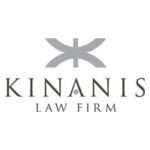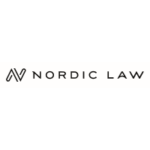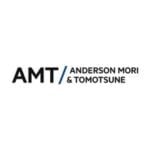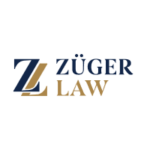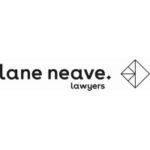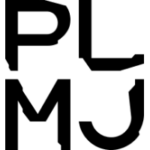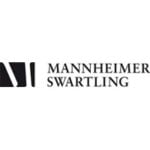-
Please provide a high-level overview of the blockchain market in your jurisdiction. In what business or public sectors are you seeing blockchain or other distributed ledger technologies being adopted?
Distributed ledger technology (“DLT”) is seeing an ever increasing – experimental and practical – application across various industry sectors in Switzerland. The public sector in Switzerland as well closely follows and supports developments in the area of blockchain, and some public institutions and cantonal governments have already adopted blockchain-based solutions or accept payments in common cryptocurrencies. The financial sector (fintech and insurtech) is at the forefront of blockchain and smart contract adoptions, with numerous businesses engaging in services relating to crypto currencies and other digital assets (e.g. asset management, trading and exchange services or custody solutions) as well as the tokenisation of assets, including securities such as shares and bonds. This is a highly regulated sector, making sound legal review and structuring essential.
Switzerland also continues to be home to various well-known blockchain-based platforms and protocols outside the financial sector. Additionally, there are also significant developments in other areas such as e-governance (e.g. e-voting systems or electronic signing), document authentication, legal services (legaltech) as well as (re)insurance services.
-
Please outline the principal legislation and the regulators most relevant to the use of blockchain technologies in your jurisdiction. In particular, is there any blockchain-specific legislation or are there any blockchain-specific regulatory frameworks in your jurisdiction, either now or envisaged in the short or mid-term?
The Federal Act on the Adaption of Federal Law to Developments in the Technology of Distributed Electronic Registers (“DLT Act”), which came into force in 2021, is a framework law by which various existing Swiss federal acts (including certain financial market laws as well as parts of civil securities law and insolvency law) were amended. One of the key elements of the DLT Act was the creation of a legal basis for so-called ledger-based securities (Registerwertrechte). These can fulfil many of the same functions as traditional paper-based or book-entry securities and enable a more legally sound tokenisation of assets. Further, the DLT Act introduced a regulatory licence category for DLT trading facilities.
Apart from the DLT Act, there is no specific, comprehensive regulation exclusively addressing the use of blockchain technology in Switzerland. However, Swiss law, and particularly Swiss financial regulation, is principle-based and technology-neutral, eschewing overly prescriptive or detailed rules. This approach has been perceived as conducive to innovation in the financial sector while at the same time creating a level playing field between traditional players and (potential) disruptors. On this basis, for all intents and purposes, blockchain-based financial services businesses have to comply with the same rules and regulations as brick-and-mortar or online institutions that do not make use of this technology. Depending on the specifics of a business model, Swiss regulations governing banking, securities trading, the formation and management of collective investment schemes, the provision of asset management, investment advisory or other financial services, consumer credit, the operation of financial market infrastructures, as well as insurance business may apply. Further, overarching regulation regarding the combating of money laundering and terrorist financing (“AML/CFT”), sanctions programmes, as well as data protection laws may have to be observed.
In the Swiss financial market, the main regulator is the Swiss Financial Market Supervisory Authority FINMA (“FINMA”), with certain regulatory and supervisory activities being exercised by recognised self-regulatory organisations (“SRO”) or so-called supervisory organisations (“SO”). Certain self-regulations have also been recognised by FINMA as minimum standards.
To provide some general guidance regarding the application of financial market laws to blockchain-based activities, FINMA issued several guidance papers such as, e.g. regarding the legal qualification and treatment of virtual or digital currencies (the so-called “ICO Guidelines”) or regarding payments on the blockchain. Most recently, on 20 December 2023, FINMA issued a guidance on staking, addressing its various forms as well as its regulatory treatment, particularly the legal basis for custody of cryptoassets. Additionally, on 26 July 2024, FINMA issued a guidance on the risks and challenges for issuers of stablecoins and banks providing guarantees. This may have significant implications for stablecoin issuers not directly regulated by FINMA, as FINMA has now set the expectation that issuers must ensure that their stablecoins cannot be transferred anonymously.
-
What is the current attitude of the government and of regulators to the use of blockchain technology in your jurisdiction?
Representatives of the Swiss federal government have publicly stated that Switzerland intends to become a leading hub for research and business solutions based on blockchain technology. The Swiss parliament followed suit, adopting the proposed DLT Act unanimously. The DLT Act aims to ensure legal certainty and foster innovation for blockchain-based projects (see also question 2). The positive attitude of the Swiss authorities is also shown by the willingness to support innovation in the crypto field. Innosuisse, the Swiss Agency for Innovation Promotion, is funding a four-year programme of the Swiss Blockchain Federation to generate ideas and start-ups in the Swiss blockchain industry.
Further initiatives exist at the cantonal (i.e. state) level: The canton of Zurich has published a guide to determine in which cases the use of blockchain technology may be beneficial for the public administration. The canton of Jura uses a blockchain-based solution for the certification of excerpts from its debt enforcement registers. Other documents such as civil status documents will soon be integrated into this technology as well. In pursuing this, the canton hopes to strengthen the trust of citizens and businesses in the administration’s online services. In the canton of Ticino, the city of Lugano is intending to become a leading Blockchain hub, with the city government having issued their own stablecoin in cooperation with Tether, which, in addition to other cryptocurrencies, may be used to pay for taxes and certain government services since March 2022.
FINMA has generally taken a welcoming attitude towards fintech and blockchain, even creating a specific fintech desk to address the needs of start-up companies and other players in that space. FINMA also continues to issue new guidelines (see also question 2) and revise its circulars, which specify its practice under applicable regulation, to render them technology-neutral (e.g. by removing requirements for documentation to be held in physical, written form or by specifically enabling technology-based solutions such as video and online identification for client onboarding purposes). That said, FINMA is strict in applying Swiss financial regulation to traditional businesses and fintechs alike. Innovators should not expect preferred treatment based on the novelty and expected benefits of their business models. A key focus of FINMA lies on the enforcement of Swiss AML/CFT regulation, in a bid to limit the risks of technology being abused for fraudulent or other undesirable purposes.
-
Is there a central bank digital currency (‘CBDC’) project in your jurisdiction? If so, what is the status of the project?
The Swiss National Bank announced in late 2020 that it successfully conducted two proofs of concept for the settlement of tokenized assets in central bank money on a distributed ledger as part of project Helvetia, in collaboration with the International Bank for International Settlement’s Innovation Hubs and SIX Swiss Exchange (the operator of the financial market infrastructure). In particular, the first part involved the issuance of a so-called “central bank digital currency” (CBDC) for use by financial intermediaries, and in the second part, a DLT platform was connected to the existing payment systems. The project was extended with a Phase 2, which added commercial banks to the experiment, added the CBDC into the core banking system of the central bank and commercial banks, and ran transactions from end to end. The experiment confirmed the operational feasibility of settling transactions on a tokenised asset platform. In December 2023, Phase 3 of the project was initiated, transitioning the Swiss franc wholesale CBDC from a test setting to real use. In early June 2024, the Swiss National Bank became the very first central bank to conduct a monetary policy operation using DLT. This operation involved issuing token-based SNB bills with a total volume of CHF 64 million, for a one-week term. In the same month, the Swiss National Bank announced to extend the project for at least two more years.
-
What is the current approach in your jurisdiction to the treatment of cryptoassets and decentralised finance (‘DeFi’) for the purposes of financial regulation?
There is no uniform definition of cryptoassets or cryptocurrencies in Swiss law. For the purposes of the Swiss fintech license (sometimes referred to as banking licence “light”), “crypto-based assets” are defined as assets held in collective custody and which factually, or according to the intention of the organizer or issuer, serve to a significant extent as a means of payment for the acquisition of goods or services or the transfer of money or value. Further, according to the Federal Council’s dispatch on the DLT Act of 27 November 2019, the term “crypto-based assets”, for the purpose of the Swiss Federal Act on Debt Enforcement and Bankruptcy (“DEBA”), refers to all assets for which the power of disposal is granted exclusively via a crypto-based access procedure. The term covers, inter alia, payment tokens (see below) as well as uncertificated ledger-based securities introduced by the DLT Act.
Separately, there is interpretative guidance by federal authorities. In particular, the Swiss federal government outlined an initial understanding of the legal qualification of virtual currencies in a report from 2014, which was mainly based on an analysis of Bitcoin (Federal Council report of 25 June 2014 on virtual currencies in response to two postulates, p. 7): “A virtual currency is a digital representation of a value which can be traded on the Internet and although it takes on the role of money – it can be used as means of payment for real goods and services – it is not accepted as legal tender anywhere. […] Virtual currencies exist only as a digital code and therefore do not have a physical counterpart for example in the form of coins or notes. Given their tradability, virtual currencies should be classified as an asset.”
Later on, FINMA issued further guidance on the regulatory treatment of blockchain tokens and activities relating thereto. Pure cryptocurrencies that are not coupled with any claim against an issuer (such as Bitcoin) are classified by FINMA under its “three bucket” approach as so-called payment tokens, i.e. tokens that are factually used or intended by the issuer to be used as a means of payment for goods or services or as a means for the transfer of money or value (cf. FINMA guidelines for enquiries regarding the regulatory framework for initial coin offerings (ICOs) dated 16 February 2018, p. 3). As per the above classification, FINMA considers that payment tokens typically do not qualify as securities within the meaning of Swiss law but may be considered a means of payment under Swiss AML regulation if they can be transferred by technical means on a blockchain infrastructure (see question 6).
Other forms of tokens that are not pure cryptocurrencies may be subject to substantially different treatment. These may be digital assets qualifying as securities or other financial instruments, interests in a collective investment scheme or (bank) deposits. In particular, on 26 July 2024, FINMA issued a guidance on the risks and challenges for issuers of stablecoins and banks providing guarantees (see question 2). FINMA concluded that stablecoin holders (i.e. investors) generally have a payment claim against the stablecoin issuer at any time, which is why these claims are usually categorised as bank deposits or collective investment schemes. The regulatory classification depends on whether the management of the underlying assets is carried out on the account and risk of the investor (indicative of a collective investment scheme) or for the account and risk of the issuer (indicative of a bank deposit). Additionally, FINMA noted that various issuers in Switzerland use default guarantees from banks to cover funds, including their repayment and interest, allowing them to operate without a banking license while only being required to affiliate with an SRO as a financial intermediary. FINMA has therefore issued specific minimum requirements for default guarantees, such as to ensure that each investor has a direct claim against the guaranteeing Swiss bank in the event of the issuer’s bankruptcy. Furthermore, FINMA issued additional remarks concerning AML regulations (see question 6). The legal qualification of these types of tokens and activities relating thereto must be assessed in the individual case based on the available FINMA guidance. In many cases with a Swiss nexus, it is considered good practice to pre-discuss projects relating to blockchain tokens with FINMA and/or to obtain a ruling regarding the applicable regulatory treatment (sometimes referred to as a “no-action letter”) prior to implementation.
It is furthermore possible that security tokens qualify as financial instruments under the Federal Act on Financial Services (“FinSA”). As a result, issuers of such tokens may, in principle, be required to publish a prospectus and a key information document if no exemption applies (see question 9). Beyond this, the FinSA specific rules such as client segmentation, rules of conduct or organisational rules may apply to persons engaging in the acquisition or disposal of such tokens or other financial services relating thereto, on a professional basis.
Additionally, FINMA noted in its 2021 annual report (p. 20) that many projects submitted enquiries around DeFi, particularly about trading platforms for tokenised securities or cryptocurrencies. FINMA has straightforwardly stated that it applies the existing regulations to the DeFi sector as well; again, a consequence of the principle-based and technology-neutral approach to financial regulation. However, the Federal Council has already tasked the Federal Department of Finance (FDF) and the State Secretariat for International Finance (SIF), in collaboration with FINMA and the industry, with examining whether the current legal and supervisory framework regarding new configurations and players is appropriate (Federal Council, Digital finance: areas of action 2022+, Bern 2022, p. 15).
-
What is the current approach in your jurisdiction to the treatment of cryptoassets and DeFi for the purposes of anti-money laundering and sanctions?
As stated above (see question 5), payment tokens may be considered a means of payment under Swiss AML regulation if they can be transferred by technical means on a blockchain infrastructure. In the issued FINMA guidance on the risks and challenges for issuers of stablecoins and banks providing guarantees (see question 5 and 6), FINMA concluded that due to the Stablecoin’s usual intended purpose as a means of payment, the AML regulation is almost always applicable. Once a cryptocurrency qualifying as a payment token is in circulation, service providers such as custodians or exchange platforms may also be required to comply with Swiss AML regulation if they are acting in or out of Switzerland.
If Swiss AML regulation is applicable, the token issuer (assuming the tokens are issued against consideration) – as a so-called financial intermediary – must (i) join a recognised Swiss SRO for AML purposes, and (ii) comply with Swiss know-your-customer (“KYC”) requirements in connection with the token issuance as well as further duties based on AML regulation, such as proper record-keeping and reporting duties in case there is a suspicion of money laundering or terrorist financing. Violations of reporting duties in cases of suspected money laundering or terrorist financing are punishable by fines of up to CHF 500,000 for intentional violations, and up to CHF 150,000 for negligence. Other applicable laws must also be considered, e.g anyone who intentionally accepts public or savings deposits without the required banking license may face up to three years’ imprisonment or a monetary penalty, while negligent conduct is punishable by a fine of up to CHF 250,000.
Additionally, as stated above, FINMA applies the existing regulations to the DeFi sector (see question 5).
-
What is the current approach in your jurisdiction to the treatment of cryptoassets and DeFi for the purposes of taxation?
With regard to the Swiss tax treatment of cryptoassets, the following guidelines have been published during the years 2019 respectively 2020/21: (i) an update of the value-added tax (VAT) guidelines and sector information guidelines regarding crypto tokens and relevant revenue streams and a certain type of NFT, outlining the relevant aspects of Swiss VAT treatment, and (ii) a working paper on the tax treatment of cryptocurrencies as well as initial coin/token offerings in the area of wealth tax, income/profit tax, withholding tax and stamp duty (published in 2019 and updated in 2021). Also, the Swiss Federal Tax Authority (FTA) includes the most popular cryptocurrencies in the foreign currency exchange list it publishes on a yearly basis for the purposes of enabling conversion into Swiss Francs for tax purposes. Certain cantons have published their own guidance on the tax treatment of cryptocurrencies, especially regarding wealth tax/individual tax.
For tax purposes, tokens are generally categorised into the following buckets: (i) payment (or native) tokens, (ii) asset-backed tokens (further divided into debt tokens, equity tokens and participation tokens), and (iii) utility tokens.
Payment tokens are from a tax perspective treated as movable capital assets. Therefore, they are subject to wealth tax at the cantonal/communal level based on their fair market value (i.e. typically the year-end value published in the FTA foreign currency exchange list) if held by a Swiss individual investor at year-end. The purchase or sale of payment tokens is treated like a transaction with traditional means of payment (currencies). The resulting profit or loss at the level of a Swiss individual investor generally qualifies as taxable income or as a non-tax-deductible expense (with certain exceptions, e.g. salary payments in payment tokens, professional trading in payment tokens, income from mining activities etc.). The purchase of a payment token by a Swiss investor on a crypto exchange respectively the issuance of a payment token is not subject to Swiss withholding tax. Because payment tokens do not qualify as taxable securities, they are not subject to issuance stamp duty respectively security transfer tax. From a VAT perspective, the issuance of payment tokens is not considered a taxable supply/service. The use of a payment token for the purchase of a supply or service is treated like the use of traditional means of payment (currencies), i.e. as a remuneration, and is not itself considered a taxable supply or service.
The categorisation into asset-backed tokens and utility tokens is more complex and the relevant tax treatment depends on the specific facts and circumstances, respectively the “features” of the token.
-
Are there any prohibitions on the use or trading of cryptoassets in your jurisdiction? If permitted, is cryptoasset trading common?
Switzerland does not prohibit the use or trading of cryptoassets nor are there any specific exchange controls relating to cryptoassets. However, certain activities relating to cryptocurrencies or other digital assets (e.g. custody, brokerage services or the operation of a DLT trading facility, trading or exchange platforms) may be subject to regulation, licence or registration requirements and/or supervision by FINMA, other authorities or SO/ SRO in Switzerland if the business is operated in or out of Switzerland or otherwise has a relevant Swiss nexus. If instruments based on DLT are used in a gamification context, also compliance with the rather strict Swiss gambling legislation has to be reviewed.
In its guidance 02/2019 regarding payments on the blockchain dated 26 August 2019, FINMA informed market participants about its interpretation of Swiss AML regulation in the context of blockchain payment services. Specifically, it addresses how the Swiss law requirement for financial services providers under FINMA supervision to transfer payment originator and beneficiary information to the recipient institutions in payment transactions must be interpreted in the context of cryptocurrencies, with FINMA applying a rather restrictive approach. While FINMA holds that originator and beneficiary identification data must not necessarily be transmitted using blockchain technology, it further stated in the guidance that it is currently neither aware of any system at national or international level (such as the SWIFT messaging system), nor of any bilateral agreements between individual service providers that would enable the reliable transmission of such data for the purposes of payment transactions on blockchain.
Therefore, for the time being, financial institutions subject to FINMA supervision are required to ensure that transfers of tokens to or from external wallets (including in the context of exchange transactions) only involve their own clients who have been appropriately onboarded. “Ownership” of external wallets must be verified using “suitable technical means”, which may prove challenging in practice. Where a token transfer involves the external wallet of a non-client third party, the financial institution will need to complete a full onboarding of such person as if it were a new client. While the guidance applies only to service providers subject to FINMA supervision, also recognised Swiss SROs have followed suit with respect to their interpretation of analogous provisions in their AML regulations as applicable to their member financial intermediaries.
FINMA has acknowledged that the requirements outlined above (commonly referred to as the travel rule) are very strict and go beyond the standards stipulated by the Financial Action Task Force (FATF) in its guidance on virtual asset transfers. However, this approach is a reflection of the increased Swiss focus on the prevention of money laundering and terrorist financing and FINMA’s intent to preclude any circumvention of the existing regulatory framework using blockchain technology.
Trading cryptoassets can be considered a fairly common activity in Switzerland. Both individuals and an increasing number of financial institutions engage in crypto trading. There are a number of professional Swiss financial intermediaries that offer exchange or trading as well as related wallet services relating to cryptocurrencies that do not qualify as securities under Swiss law. Several rather traditional Swiss banks, e.g. PostFinance and Maerki Baumann, and securities firms have taken up services for their clients relating to cryptocurrencies. However, many still have a reserved attitude towards clients with major cryptocurrency holdings or those that are active in cryptocurrency or blockchain related businesses.
-
To what extent have initial coin offerings (‘ICOs’) taken place in your jurisdiction and what has been the attitude of relevant authorities to ICOs? If permissible, what are the key requirements that an entity would need to comply with when launching an ICO?
ICO activity in Switzerland rose significantly from 2016, peaking in 2018 with a total of 86 completed ICOs in the first 10 months of the year, representing an investment volume of approx. USD 1,65 billion (ZHAW Zurich University of Applied Sciences, Initial Coin Offerings – Survey 2018, p. 9). However, in 2019 and 2020, the funding volume of token offerings dropped significantly, then increased again in 2021 but without reaching anywhere near the funding volume of 2018 (Institute of Financial Services Zug (IFZ), IFZ Fintech Study 2022).
FINMA continues to take an open-minded approach towards projects for token issuances in or out of Switzerland to the extent they are structured and conducted in line with Swiss and applicable foreign financial regulation. Organisers are encouraged to pre-discuss their projects with the regulator prior to launch and to obtain formal feedback in the form of a regulatory “no-action letter” or confirmation of the regulatory requirements to be complied with.
There is no cookie-cutter approach to Swiss ICOs or STOs (security token offerings), to the extent these approaches are still used. In short, any such project must be reviewed individually, taking a substance-over-form approach, to determine the applicable legal and regulatory requirements. Depending on the nature and categorisation of the token to be issued, differing regimes may apply.
For instance, issuances of pure payment tokens in or out of Switzerland are typically subject to AML regulation. Where tokens qualify as securities under Swiss law – which may be the case for e.g. asset tokens or for hybrid forms such as some of the types of stable coins outlined below, Swiss law may require that a prospectus be prepared (noting that there are several exemptions available from the requirement to prepare a prospectus). Utility tokens, i.e. tokens intended to provide access to a digital application or service which is rendered using a blockchain, may in principle fall outside of current financial and securities regulation. However, in practice, they often include other components that lead to a different regulatory qualification, i.e. this category is narrowly framed. According to FINMA practice, if a utility token is not useable as such at the point in time of issuance, it must be considered a security. Furthermore, for certain tokens qualifying as financial instruments and that are intended to be offered to retail clients, a key information document will need to be prepared.
If a payment token is structured as a stablecoin with a link to certain underlying assets, further requirements may apply, as detailed in the respective FINMA guidance:
- Where a stablecoin is backed by currencies and the holder of the coin has a right of redemption at a fixed price against the issuer, the latter may be deemed to have accepted deposits from the public, an activity requiring a license as a bank pursuant to the Swiss Banking Act. By contrast, if the coin holder may redeem only at the current value of an underlying currency basket (e. at net asset value), the coin may qualify as a unit in a collective investment scheme rather than as a deposit, triggering licensing and approval requirements pursuant to the Swiss Collective Investment Schemes Act (CISA).
- Licensing requirements for an issuer of stablecoins backed by commodities depend on the type of underlying commodity and whether the coin holder has a contractual claim only or acquires a right in rem in the underlying commodity. Stable coins representing a right in rem are not subject to financial market regulations and do not qualify as securities if certain requirements are fulfilled at all times. By contrast, where a stablecoin represents a contractual claim against the issuer, the qualification of the coin depends on the type of the underlying commodity. If the stablecoin is backed by banking-grade precious metals, the issuer may require a banking license. If other commodities are used as underlying, the coin may constitute a security and potentially also qualify as a derivative resulting in a potential licensing obligation for the issuer as a securities dealer. Lastly, commodity-based stablecoins may also qualify as units in a collective investment scheme if the investors are exposed to the risks related to the management and custody of the underlying commodities. The same will in most cases go for redeemable stablecoins backed by real estate.
- Where stable coins are backed by securities, a distinction must be made between a single-security underlying and a basket of securities. Coins backed by a single security are likely, by extension, to also qualify as a security and may, depending on the specifics of the individual case, constitute a derivative or even a structured product. By contrast, if the underlying is composed of a basket of several securities, the stablecoin so backed will in most cases constitute a unit in a collective investment scheme, triggering licensing and approval requirements pursuant to the Swiss Collective Investment Schemes Act (CISA).
-
Are there any legal or regulatory issues concerning the transfer of title to or the granting of security over cryptoassets?
Where digital assets are intended to represent a claim against an issuer or another external party, there was a major concern under Swiss law prior to the DLT Act that the formal requirements for the transfer of such claim from one party to another cannot be fulfilled by a mere digital transaction on a distributed ledger. This is because Swiss law generally requires a written instrument for an effective transfer of uncertificated claims. Similar concerns apply regarding the granting of security over claims represented by blockchain tokens.
The DLT Act that entered into force in 2021 partially resolved this legal uncertainty by creating a civil law basis in the Swiss Code of Obligations for securities existing based on a decentralised digital ledger only (so-called uncertificated ledger-based securities). Furthermore, the new law includes specific rules regarding the transfer of such uncertificated ledger-based securities as well as the creation of pledges over such securities. It is worth noting that pure cryptocurrencies, i.e. native units of value on a blockchain that do not constitute nor represent a claim against a third party, are mostly unaffected by the concerns set out above.
-
How are smart contracts characterised within your legal framework? Are there any enforceability issues specific to the operation of smart contracts which do not arise in the case of traditional legal contracts?
In its report on the legal framework for distributed ledger technology and blockchain in Switzerland of 14 December 2018 (p. 80 et seq.), the Federal Council characterised smart contracts as a computer protocol, usually based on a decentralised blockchain system, which allows automated contract execution between two or more parties with previously coded data. According to the Federal Council, a smart contract has three main characteristics:
- No human intervention is required: The terms of the contract are first determined by the parties and then converted into machine-readable form so that it can be executed automatically.
- A smart contract is immutable, i.e. the code cannot be changed by any party. It is thus, in principle, the absolute embodiment of the principle pacta sunt servanda.
- The smart contract is limited to the digital world. Typically, only electronic goods or services (exchange of digital goods, transfer of money etc.) can be the subject of a smart contract.
The term “smart contract” is somewhat of a misnomer, and Swiss legal doctrine largely agrees that it denotes technology for contract execution rather than a contract in the sense of the Swiss Code of Obligations, mainly due to the anonymity of the counterparty. Additionally, Swiss legal doctrine and practice in this area are still in an early phase of development and potential issues such as liability for programming errors or execution errors have not yet been fully explored. The Federal Council decided to await further developments before issuing specific legislation for smart contracts (cf. Federal Council report “Legal basis for distributed ledger technology and blockchain in Switzerland” dated 14 December 2018, p. 81)
We are not aware of any relevant Swiss case law in the area of smart contracts. Certainly, the immutability of smart contracts raises questions as to how changing circumstances and dispute resolution can be adequately addressed (cf. Federal Council report “Legal basis for distributed ledger technology and blockchain in Switzerland” dated 14 December 2018, p. 81).
-
How are Decentralised Autonomous Organisations (‘DAOs’) treated in your jurisdiction?
Switzerland does not have a specific legislation governing the treatment of DAOs. The Federal Council characterised DAOs as structures where investors contribute cryptocurrencies and, in return, receive tokens that give them participation rights (cf. Federal Council report “Legal basis for distributed ledger technology and blockchain in Switzerland” dated 14 December 2018, p.128). From a civil law perspective, depending on the structure and purpose, different qualifications of DAOs are conceivable, e.g. a simple partnership (einfache Gesellschaft) or association (Verein). In the context of financial market laws, and again depending on the specifics of the project, in particular, the question may arise as to whether a DAO might qualify as a collective investment scheme under the CISA. A case-by-case analysis is advisable, also from a tax perspective.
-
Have there been any governmental or regulatory enforcement actions concerning blockchain in your jurisdiction?
In 2017, FINMA conducted enforcement proceedings against an association and two companies that had developed and marketed a “fake” cryptocurrency under the name “E-Coin”. They were found to have operated a commercial deposit-taking business without a relevant financial market licence (as later confirmed by the Swiss Federal Administrative Court). As a consequence, FINMA ordered them to be liquidated.
In July 2018, FINMA launched an enforcement proceeding against envion AG, an ICO issuer that had allegedly aimed to develop mobile mining units for cryptocurrencies. After the conclusion of the proceeding, FINMA announced in a press release dated 27 March 2019, that the company had accepted deposits (within the meaning of Swiss banking regulation) from at least 37,000 investors without a relevant financial market licence and had thereby severely violated supervisory law. The deposits amounted to over CHF 90 million Swiss francs. No supervisory measures by FINMA were considered necessary as the Cantonal Court of Zug had in the meantime opened bankruptcy proceedings over the company on grounds of organisational deficiencies.
In early 2023, a known crypto influencer and self-proclaimed millionaire was indicted of operating without the proper licenses and ordered to refrain from any further activities by FINMA, followed by an investigation by the public prosecutors for suspected fraud and money laundering offences.
Further, FINMA maintains and publishes a warning list of companies and individuals who may be carrying out unauthorised services and are not supervised by FINMA. Among these, many crypto related businesses are listed.
-
Are there any other generally-applicable laws, case law or regulations that may present issues for the use of blockchain technology (such as privacy and data protection law or insolvency law)?
Based on the DLT Act, rules regarding the segregation of crypto-based assets from the bankruptcy estate, both in general insolvency and bank insolvency, as well as on data access have been introduced to the DEBA (see question 2).
Swiss data protection law is set forth in the Swiss Federal Act on Data Protection (“DPA”) and its implementing ordinance. As a general concept, blockchain businesses can become subject to the DPA if they are domiciled in Switzerland or process personal data in Switzerland (the mere storage of personal data on a server in Switzerland is sufficient). The revised DPA entered into force in September 2023 and no longer protects personal data of legal entities. The revision further aligns the DPA with the requirements of the General Data Protection Regulation of the EU and provides more obligations and higher fines for certain violations of the DPA. Such obligations include e.g. maintaining a register of all data processing activities, reporting certain data breaches, and actively informing all data subjects of all data processing activities.
-
Are there any other key issues concerning blockchain technology in your jurisdiction that legal practitioners should be aware of?
To ensure legal and regulatory compliance, the legal qualification of commercial applications of blockchain technology, tokens and activities relating thereto must be assessed in each individual case prior to real use implementation (e.g. by obtaining a “no-action” letter from FINMA (see question 5 and 9) and/or a tax ruling from the competent tax authority). This process and the associated costs have to be considered in the project management from the very beginning. Sound legal advice is recommended.
Switzerland: Blockchain
This country-specific Q&A provides an overview of Blockchain laws and regulations applicable in Switzerland.
-
Please provide a high-level overview of the blockchain market in your jurisdiction. In what business or public sectors are you seeing blockchain or other distributed ledger technologies being adopted?
-
Please outline the principal legislation and the regulators most relevant to the use of blockchain technologies in your jurisdiction. In particular, is there any blockchain-specific legislation or are there any blockchain-specific regulatory frameworks in your jurisdiction, either now or envisaged in the short or mid-term?
-
What is the current attitude of the government and of regulators to the use of blockchain technology in your jurisdiction?
-
Is there a central bank digital currency (‘CBDC’) project in your jurisdiction? If so, what is the status of the project?
-
What is the current approach in your jurisdiction to the treatment of cryptoassets and decentralised finance (‘DeFi’) for the purposes of financial regulation?
-
What is the current approach in your jurisdiction to the treatment of cryptoassets and DeFi for the purposes of anti-money laundering and sanctions?
-
What is the current approach in your jurisdiction to the treatment of cryptoassets and DeFi for the purposes of taxation?
-
Are there any prohibitions on the use or trading of cryptoassets in your jurisdiction? If permitted, is cryptoasset trading common?
-
To what extent have initial coin offerings (‘ICOs’) taken place in your jurisdiction and what has been the attitude of relevant authorities to ICOs? If permissible, what are the key requirements that an entity would need to comply with when launching an ICO?
-
Are there any legal or regulatory issues concerning the transfer of title to or the granting of security over cryptoassets?
-
How are smart contracts characterised within your legal framework? Are there any enforceability issues specific to the operation of smart contracts which do not arise in the case of traditional legal contracts?
-
How are Decentralised Autonomous Organisations (‘DAOs’) treated in your jurisdiction?
-
Have there been any governmental or regulatory enforcement actions concerning blockchain in your jurisdiction?
-
Are there any other generally-applicable laws, case law or regulations that may present issues for the use of blockchain technology (such as privacy and data protection law or insolvency law)?
-
Are there any other key issues concerning blockchain technology in your jurisdiction that legal practitioners should be aware of?



